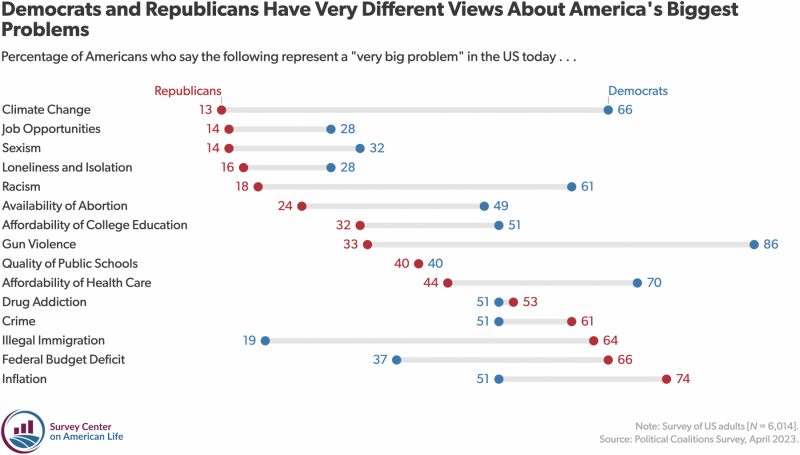
Changes in personal tax in the UK could have a significant impact on individuals, as set out below in the summaries of the Conservative and Labour manifestos. In the US, we will continue to monitor the policy platforms as they emerge. Central bank policy will continue to be the main driver for investors in the near term.
In the UK, polls suggest strong support for a change in government. Whilst there continue to be ideological differences between the Labour and Conservative parties, these are less pronounced than they were at the last General Election. We expect capital gains tax and inheritance tax to be on the radar of the new government.
Summary points from Conservative and Labour manifestos
| Conservative | Labour | |
|---|---|---|
| Taxation and economy | Tax reform
|
Tax reform
|
| Foreign policy | Defence spending
Binding annual cap on visas
|
Defence spending
Reduce net migration
|
| Education | Childcare and apprenticeships
|
Use VAT from private school fees to fund:
Childcare and parental leave
|
| Housing | Housing and planning reform
|
Housing and planning reform
|
| Healthcare | NHS commitments
|
NHS commitments
|
| Environment | Net zero
|
Net zero
|
| Other | Crime
|
Electoral reform
Nationalisation and devolution
Crime
|
In the US, we are further away from final policy commitments, but that has not stopped this race from gathering huge interest. Despite a crowded primary, it is now clear that the US will face a reprise of the 2020 election in a choice between incumbent Democrat Joe Biden and former Republican President Donald Trump.
For the Democrats, concerns about Biden’s age remain a priority for the voter base. In 2020, he was the oldest person to be inaugurated as President in the US. Now aged 81, questions around his ability to lead another term have been temporarily dulled by the lack of attractive challenging candidates from within the party.
For the Republicans, the final challenger to Donald Trump – Nikki Haley – withdrew in March from the race after winning only one Super Tuesday contest. Trump is now a known entity, having held office from 2016 to 2020. He is a contentious and controversial character, perhaps more so now than ahead of the 2016 election, having recently been found guilty on 34 felony counts of falsified business records.
With the American voter base and political parties more ‘polarised’ than we are accustomed to in the UK, the likely policy priorities will differ between the Republican and Democrat forums. A recent survey conducted by the Survey Center on American Life demonstrates the challenge, indicating that there remain several areas of high priority for each side of the political spectrum that are barely registered by the other side.
For Democrat voters surveyed, gun violence, affordability of healthcare, and climate change were top of the agenda. For Republican voters, inflation, the federal budget deficit, and illegal immigration topped the list.

Conclusions are not straightforward to draw in terms of readthrough for markets or the wider economic environment at this stage. We anticipate significant global media attention as the political process plays out in the US. Key areas of interest for investors will be: any signals around the political establishment’s engagement with global geopolitics; antitrust indications – particularly in the context of the Magnificent Seven’s concentration in global equity indices; corporate tax policy; and any changes in the relationship between the President / elected representatives and the Federal Reserve.
As ever, we believe that the noise around political developments will tend to have more of an impact on personal finances (and dinner table conversation!) than on wider markets. In both regions, we see relatively modest macroeconomic implications to the suggested policy priorities of competing parties.
Risk warnings
This document has been prepared based on our understanding of current UK law and HM Revenue and Customs practice, both of which may be the subject of change in the future. The opinions expressed herein are those of Cantab Asset Management Ltd and should not be construed as investment advice. Cantab Asset Management Ltd is authorised and regulated by the Financial Conduct Authority. As with all equity-based and bond-based investments, the value and the income therefrom can fall as well as rise and you may not get back all the money that you invested. The value of overseas securities will be influenced by the exchange rate used to convert these to sterling. Investments in stocks and shares should therefore be viewed as a medium to long-term investment. Past performance is not a guide to the future. It is important to note that in selecting ESG investments, a screening out process has taken place which eliminates many investments potentially providing good financial returns. By reducing the universe of possible investments, the investment performance of ESG portfolios might be less than that potentially produced by selecting from the larger unscreened universe.


